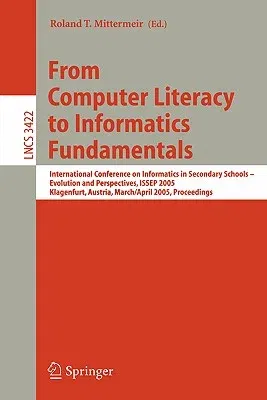Twenty years ago, informatics was introduced as a compulsory subject in
A- trian secondary schools. During this period informatics has
experienced drastic evolutions and even some shifts of paradigms. This
applies to an even larger extent to the didactics of informatics.
ISSEP-InformaticsinSecondarySchools, EvolutionandPerspectives-takes
stock of how the developments in the ?eld are re?ected in school
throughout Europe.
Teachersofinformaticsatsecondaryschoolsaswellaseducatorsofsuch teachers
propose innovative methods of instruction, discuss the scope of overall
informaticsinstruction, anddiscusshowinnovativeconceptscanbedisseminated
to students in education as well as to active informatics teachers.
Duetothepenetrationofinformationtechnologyintosocietyatlargeandinto
schools in particular, the relationship between informatics and
education leading
togeneralcomputerliteracyortotheuseofIT-basedapproachesinconventional
subjects, e-learning in school, is an evident focus of many
contributions. According to the broad scope of the conference its
proceedings are split into two volumes. This volume, From Computer
Literacy to Informatics Fundam- tals, covers papers reporting on
national strategies of informatics instruction and their evolution in
accordance with the penetration of information proce- ing equipment in
our daily life. In one way or another, these strategies strive to
accommodate the needs of basic skills in information and communication
te- nology (ICT) with educational principles that can be conveyed by
informatics instruction in a traditional sense. Hence, the papers on
national strategies are complementedintwoways: ?rstly,
bycontributionsthatstrivetoidentifyfun- mental issues, informatics can
contribute to the general education process of the youth; and, secondly,
by papers presenting approaches on how to link or even to combine
instruction about such informatics fundamentals with the need to
introduce pupils to the productive use of ICT.


